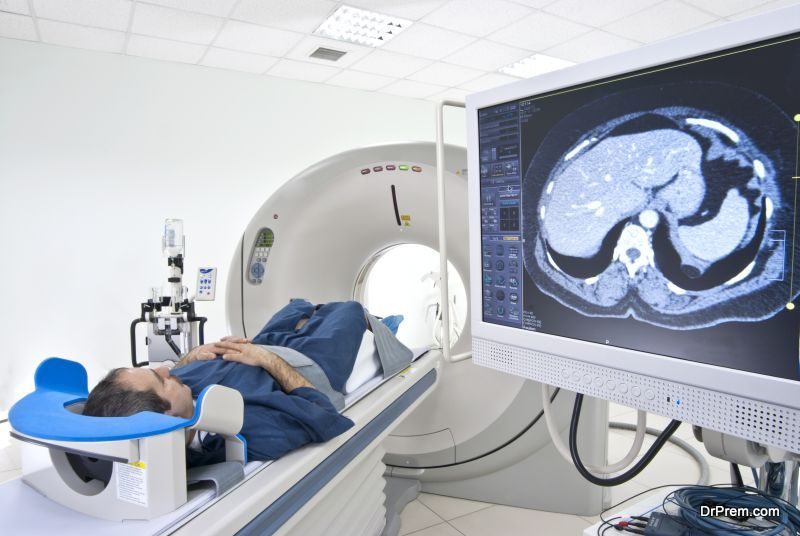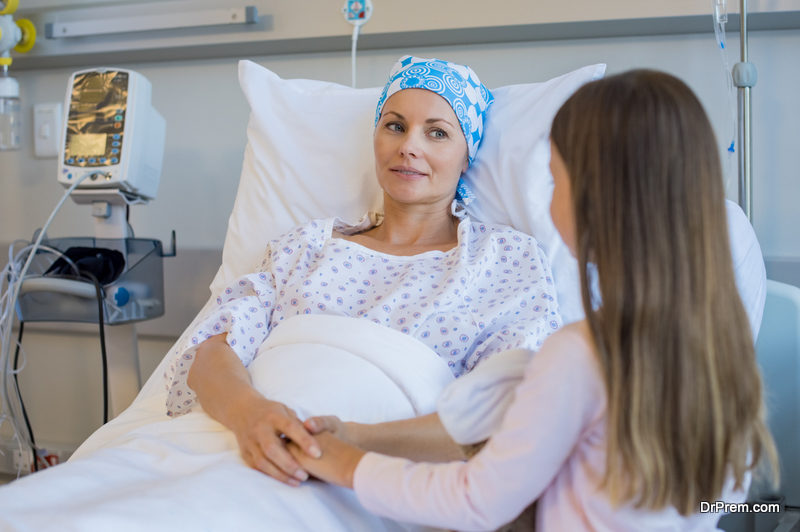If you’ve recently been diagnosed with cancer, you’re not alone. A shocking one out of three Americans will experience cancer at some point in their lifetime. And regardless of how prepared you think you might be, hearing the doctor use the “C” word is a life-changing event. A million questions rush through your mind. “Am I going to die?” “How do I tell my family?” “Will I lose my hair?” These are just a few of the thoughts you may experience following a cancer diagnosis. This article will help offer tips, tricks, and advice for handling your cancer diagnosis, both physically and mentally.
1. Avoid Denial
 No one wants to believe they have cancer. Cancer is something that happens to other people, not to you. Right? Wrong. Sadly, no one is safe from cancer and with more than 100 different forms of cancer out there, the risk has never been greater. While there are some steps you can take to promote a healthy lifestyle, you can’t “trick” or hide from cancer. Once the doctor hands down the diagnosis, it’s important to accept it. This may take a little time, but you need to take it all in, process the information, and then formulate a game plan.
No one wants to believe they have cancer. Cancer is something that happens to other people, not to you. Right? Wrong. Sadly, no one is safe from cancer and with more than 100 different forms of cancer out there, the risk has never been greater. While there are some steps you can take to promote a healthy lifestyle, you can’t “trick” or hide from cancer. Once the doctor hands down the diagnosis, it’s important to accept it. This may take a little time, but you need to take it all in, process the information, and then formulate a game plan.
Your oncologist will provide you with information regarding the type of cancer you have and at what stage. They’ll recommend treatment, which may include chemotherapy or radiation, or both. Denying that anything is wrong will only make handling your reality that much harder. But denial can be dangerous long before you’re diagnosed. If you’re exhibiting warning signs of cancer, don’t ignore them! Early detection is crucial for fighting cancer and saving your life.
2. Keep a Positive Mindframe
This one can be tough. Staying positive in the face of a potential fatal diagnosis is no easy task. But there’s a lot to be said about mind over matter. Some doctors actually report seeing an improvement in cancer patients who are more positive and proactive about their treatment and recovery. Those patients, who succumb to the negativity surrounding their diagnosis and anticipate a grim outcome, could be making their condition worse. The human body is an amazing thing. When you alter your mind frame to one of positivity and the strength to overcome, incredible things happen. Learn more here about tapping into your spiritual side.
3. Prepare for the Worst
 While keeping a positive outlook is crucial for recovery, you also need to be realistic. There’s really nothing pretty about cancer. You’ll feel sick, tired, and defeated many time throughout the recovery process. The fear of a relapse is always in the back of your mind. But identifying and facing these fears head on, is one of the best ways to prepare for the worst. Some people are of the mind that ignorance is bliss. Not knowing what’s ahead somehow makes dealing with it easier. But for many, knowing what’s to come gives them a sense of control over a situation that seems ultimately, out of their control. Understand that chemotherapy is a possibility. And with that, comes the potential for hair loss, vomiting, and exhaustion. If your doctor recommends radiation, you may end up with visible burns and scars on your skin. Sometimes, anticipating the worst means being pleasantly surprised when you get a bit of good news or an improvement you weren’t expecting.
While keeping a positive outlook is crucial for recovery, you also need to be realistic. There’s really nothing pretty about cancer. You’ll feel sick, tired, and defeated many time throughout the recovery process. The fear of a relapse is always in the back of your mind. But identifying and facing these fears head on, is one of the best ways to prepare for the worst. Some people are of the mind that ignorance is bliss. Not knowing what’s ahead somehow makes dealing with it easier. But for many, knowing what’s to come gives them a sense of control over a situation that seems ultimately, out of their control. Understand that chemotherapy is a possibility. And with that, comes the potential for hair loss, vomiting, and exhaustion. If your doctor recommends radiation, you may end up with visible burns and scars on your skin. Sometimes, anticipating the worst means being pleasantly surprised when you get a bit of good news or an improvement you weren’t expecting.
4. Find a Support Group
There’s power in numbers. And with millions of Americans suffering from cancer every day, there are countless ways to find support among other patients. It’s no secret that Facebook and other social media platforms are taking over the world! If you’re looking for a support group, chances are, you’ll find what you’re looking for online. Search for groups with members dealing with your same type of cancer. Are they mothers? Children of cancer patients? Or perhaps children themselves. Many cancer patients find comfort in speaking with, and even meeting, others going through the exact same thing as them. Ask your oncologist about any local support groups. Doctor’s offices and hospitals can recommend support groups within their own facilities. If you’re feeling alone in your struggle, a support group can help.
5. Don’t Forget About Your Family
 One thing that some people forget following a cancer diagnosis is that they’re not the only ones dealing with the tragic news. You likely have friends and family that will be as shocked and heartbroken as you are. This is especially true if you’re a parent. Parents of young children are the center of their universe. As moms, you’re the rock of the household. Dads, you financially support the family. Think of how scary it must be for your young children to find out that mommy or daddy is very sick. And yes, they might die. The age of your children will ultimately determine how much information you share about your condition. There’s no need to scare them but you also don’t want to lie to them. This article offers tips on discussing your cancer diagnosis with your children. Spouses, relatives, and close friends may also need some time and help dealing with your recent diagnosis.
One thing that some people forget following a cancer diagnosis is that they’re not the only ones dealing with the tragic news. You likely have friends and family that will be as shocked and heartbroken as you are. This is especially true if you’re a parent. Parents of young children are the center of their universe. As moms, you’re the rock of the household. Dads, you financially support the family. Think of how scary it must be for your young children to find out that mommy or daddy is very sick. And yes, they might die. The age of your children will ultimately determine how much information you share about your condition. There’s no need to scare them but you also don’t want to lie to them. This article offers tips on discussing your cancer diagnosis with your children. Spouses, relatives, and close friends may also need some time and help dealing with your recent diagnosis.
6. Be Kind to Yourself
At the end of the day, regardless of the type of cancer you have, you may reach a point where you blame yourself in some way. Did you recently skip a routine check-up at the doctor? Did you ignore feelings of tiredness or that lump in your neck or breast? Don’t beat yourself up over what you didn’t do. Instead, focus on what you can do now to improve your situation. Is chemotherapy proving more difficult than you thought? Can you not stomach the medication? Instead of putting yourself down for being weak, give yourself a pep talk about how strong and resilient you are. Hate how you look without hair? Use this as the perfect excuse to rock some new, fashionable scarves or headwraps. Always wanted to be a redhead? Now’s your chance! Invest in some quality wigs that make you feel adventurous and beautiful. And most importantly, let yourself take a break. Rest, accept the help that’s being offered, and respect the healing process of your body.
Getting diagnosed with cancer is a life-changing moment. But it isn’t a life sentence! Maintaining a positive (but realistic) mindframe and surrounding yourself with knowledgeable and supportive people will help make your recovery process easier to handle.
Article Submitted By Community Writer




